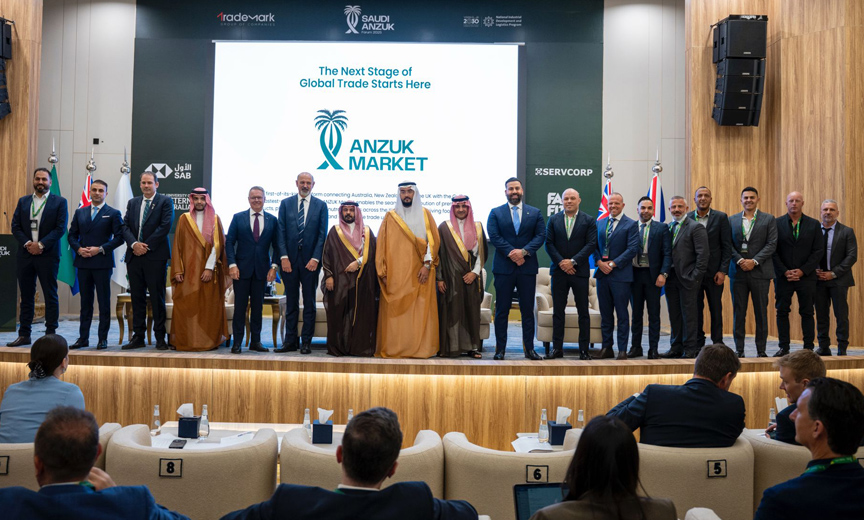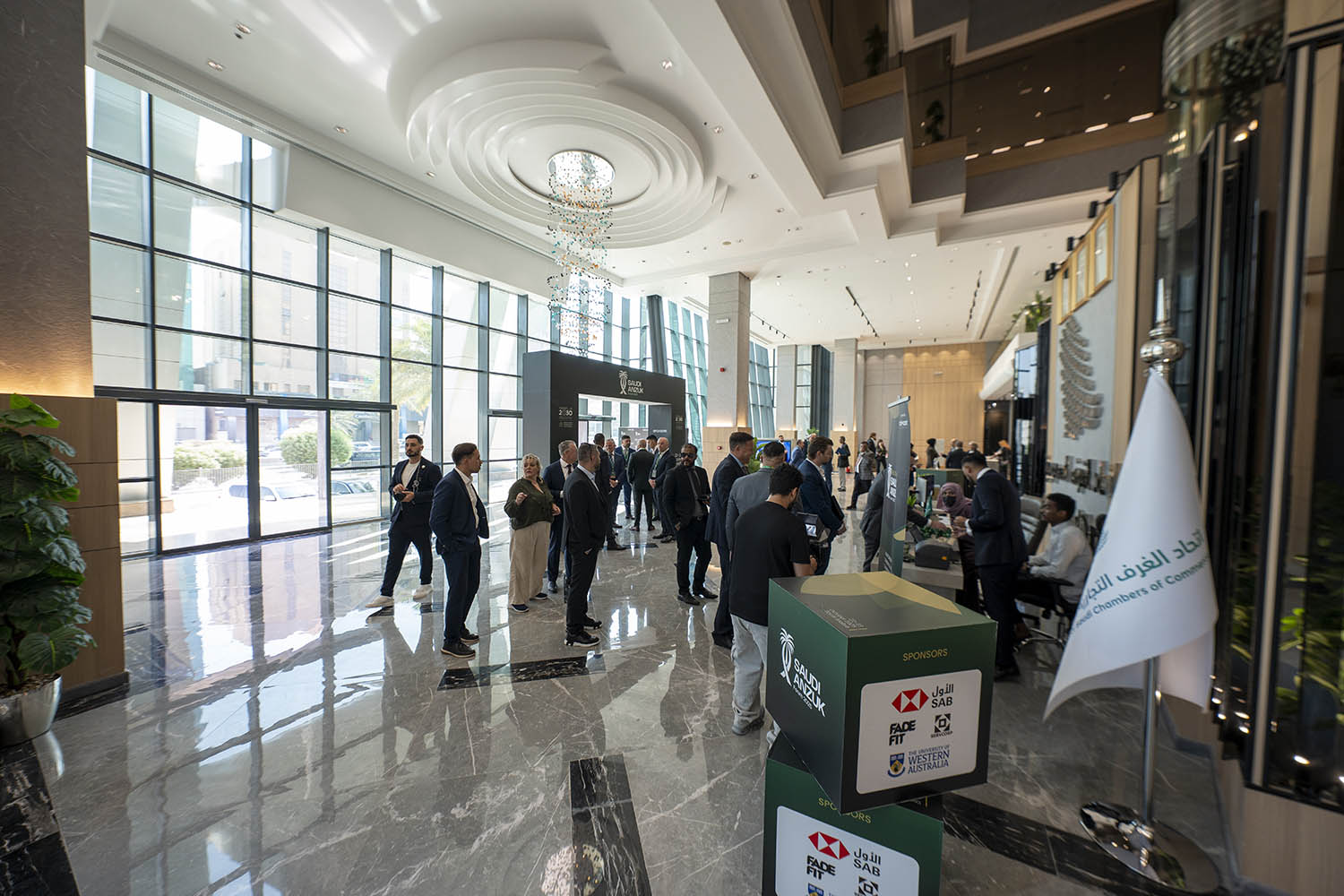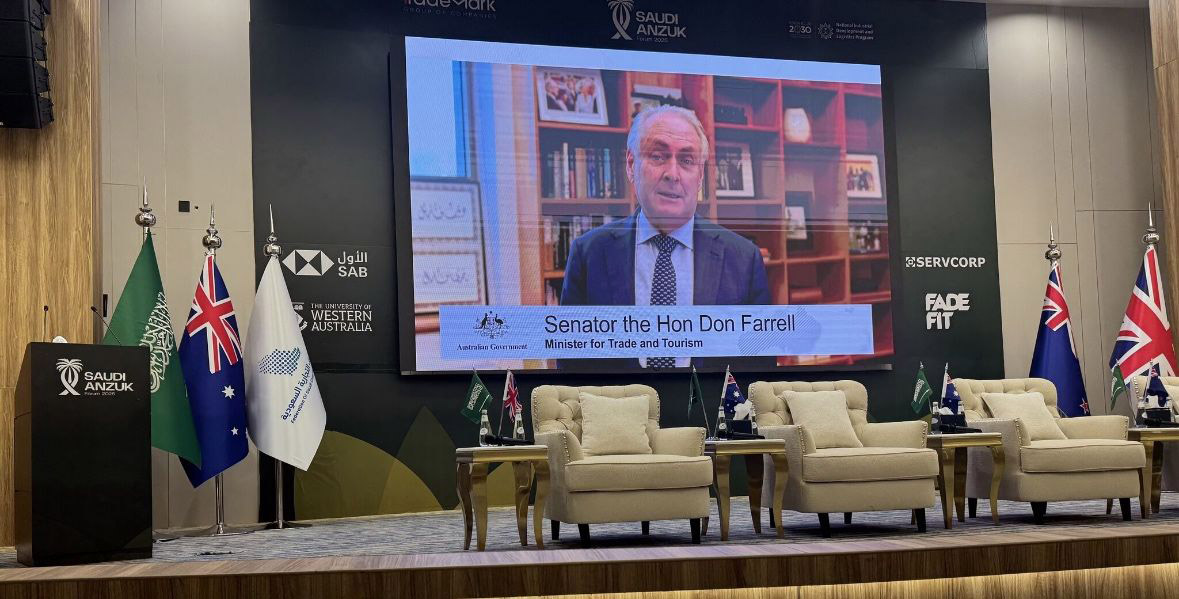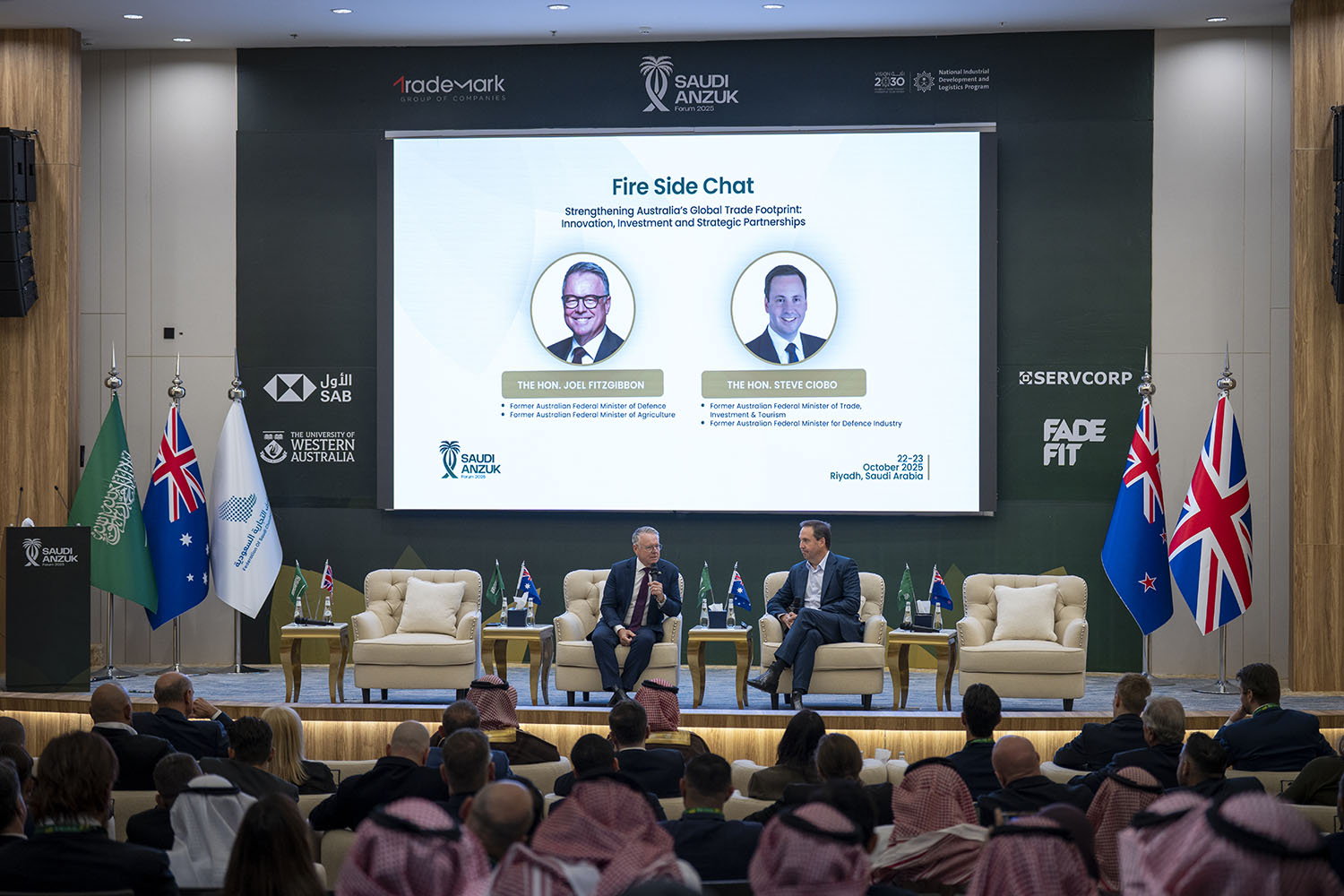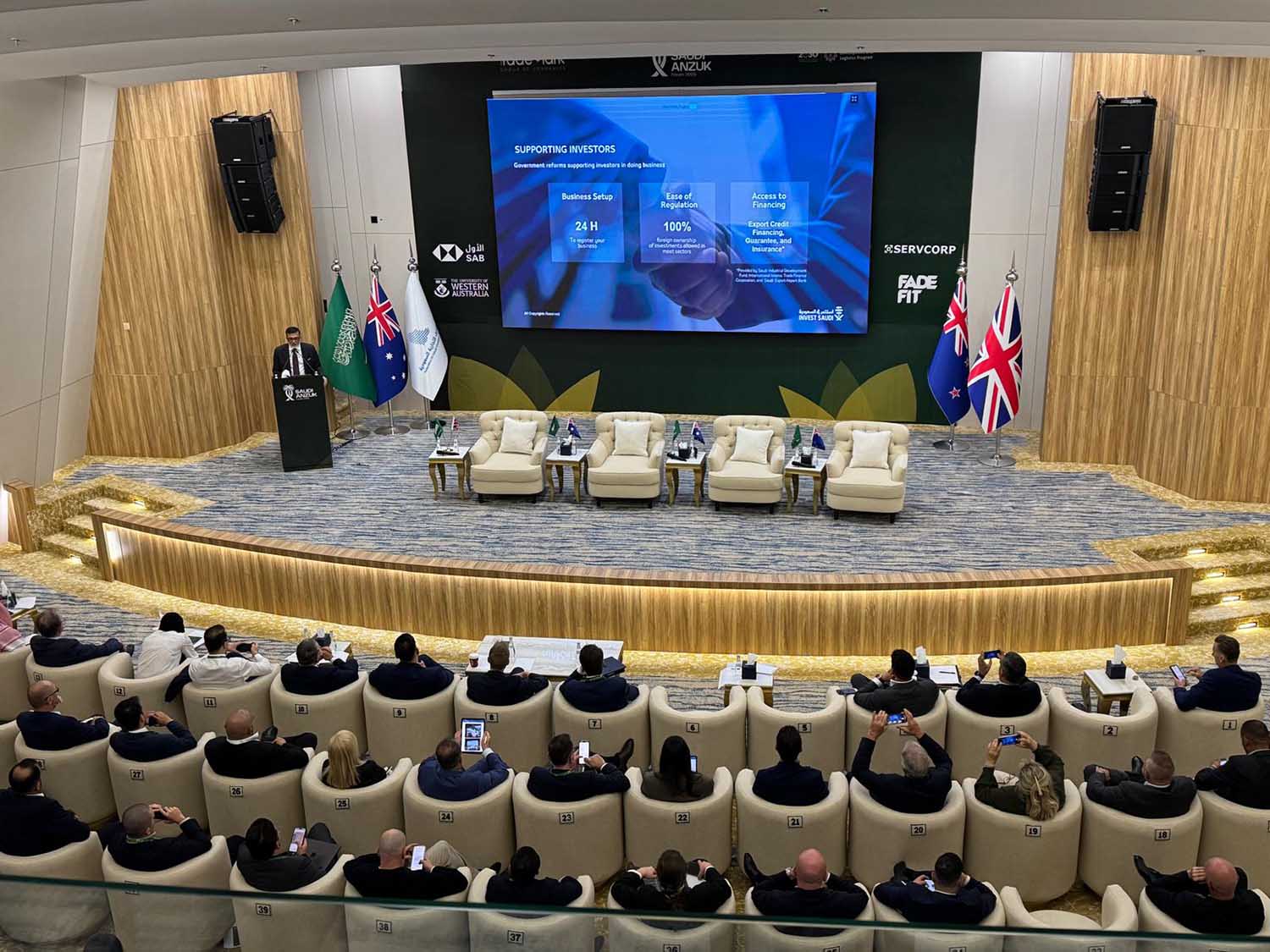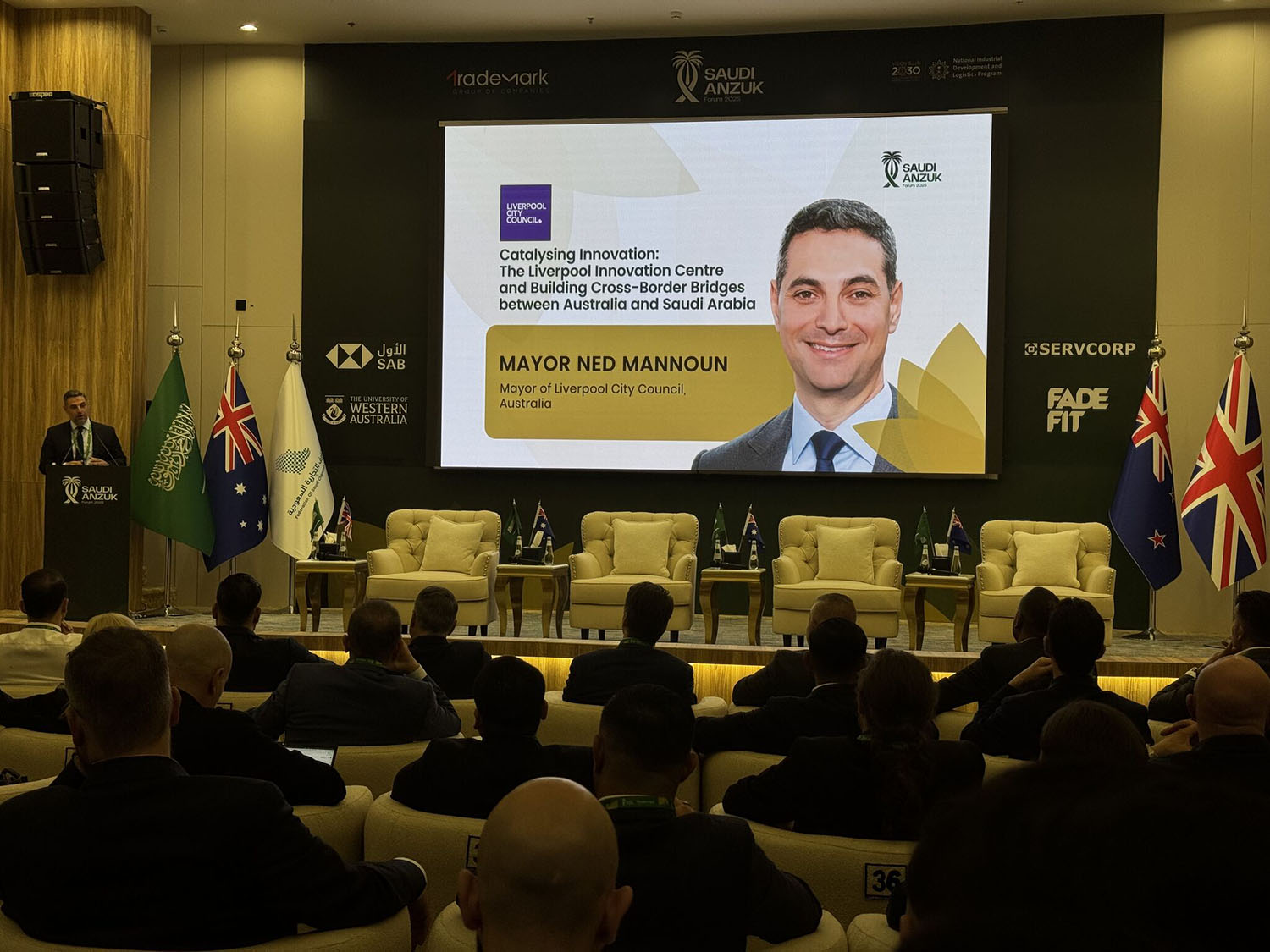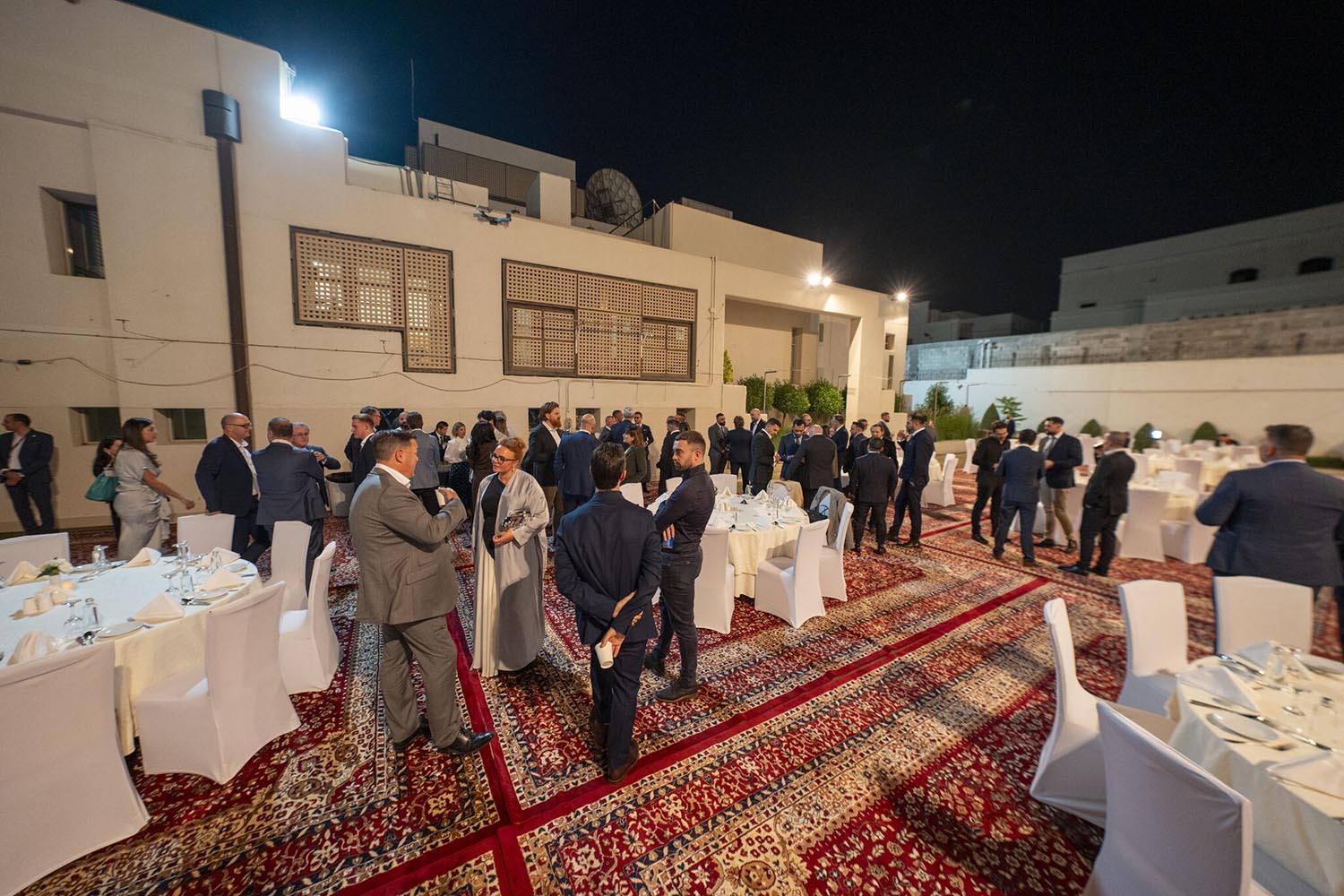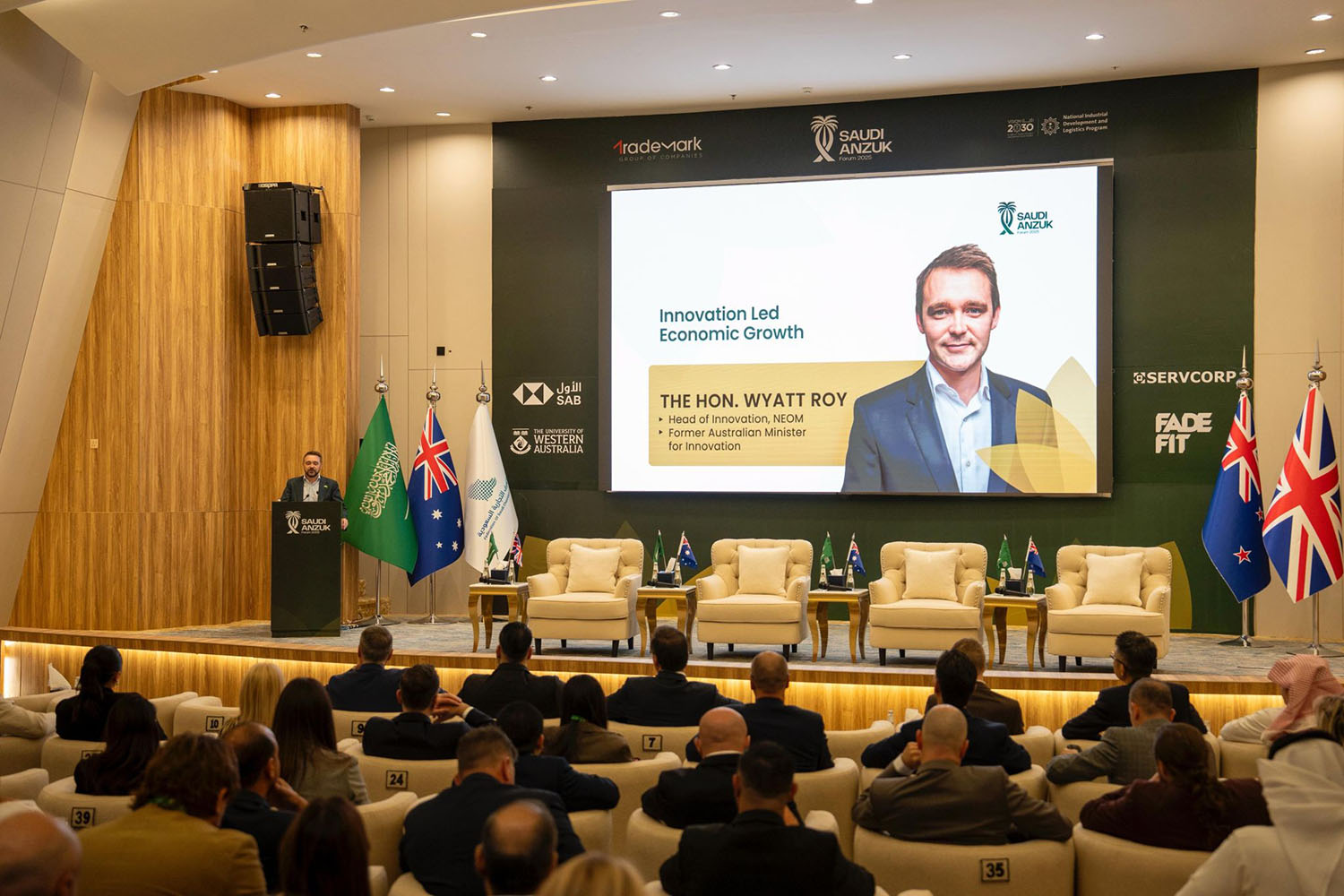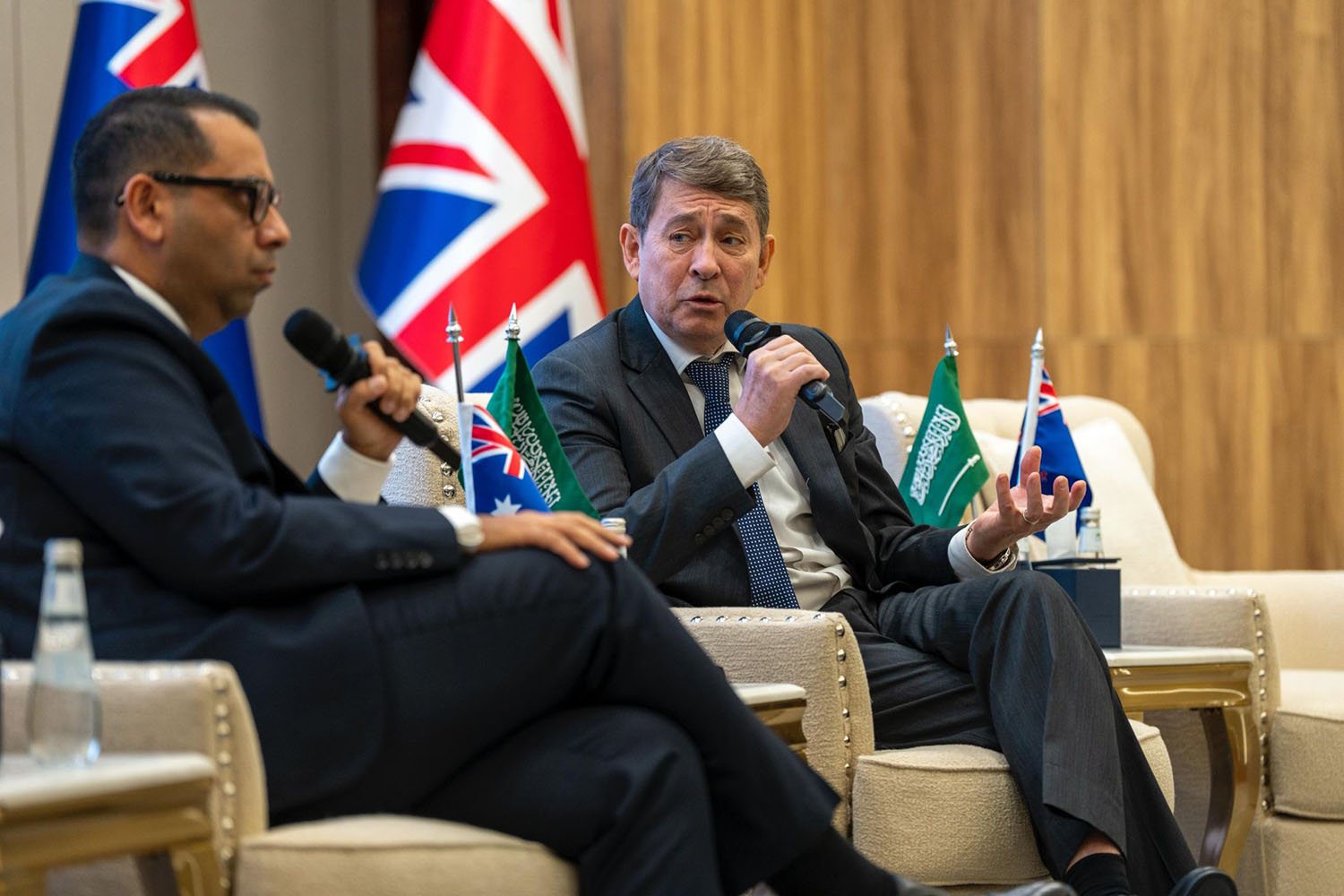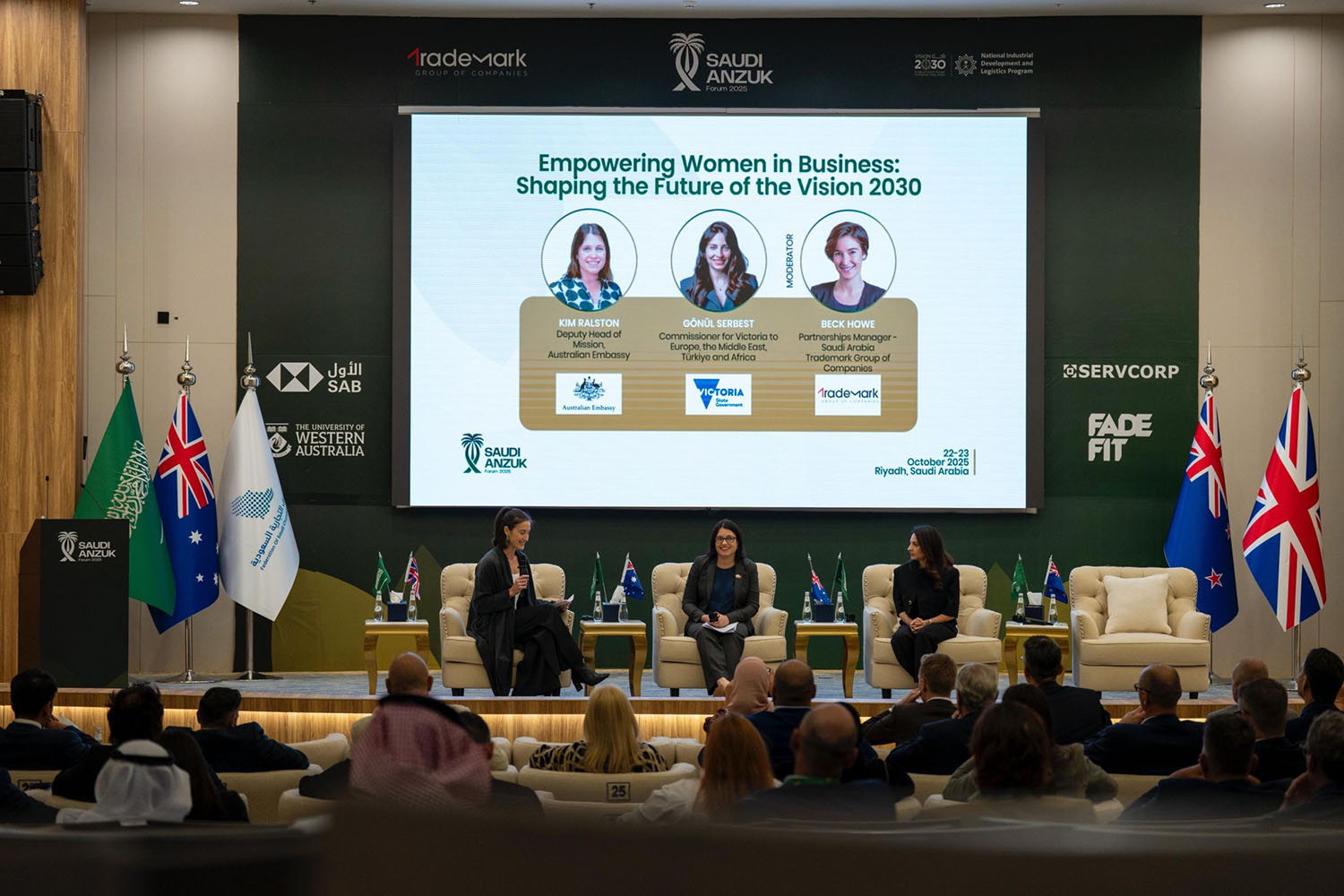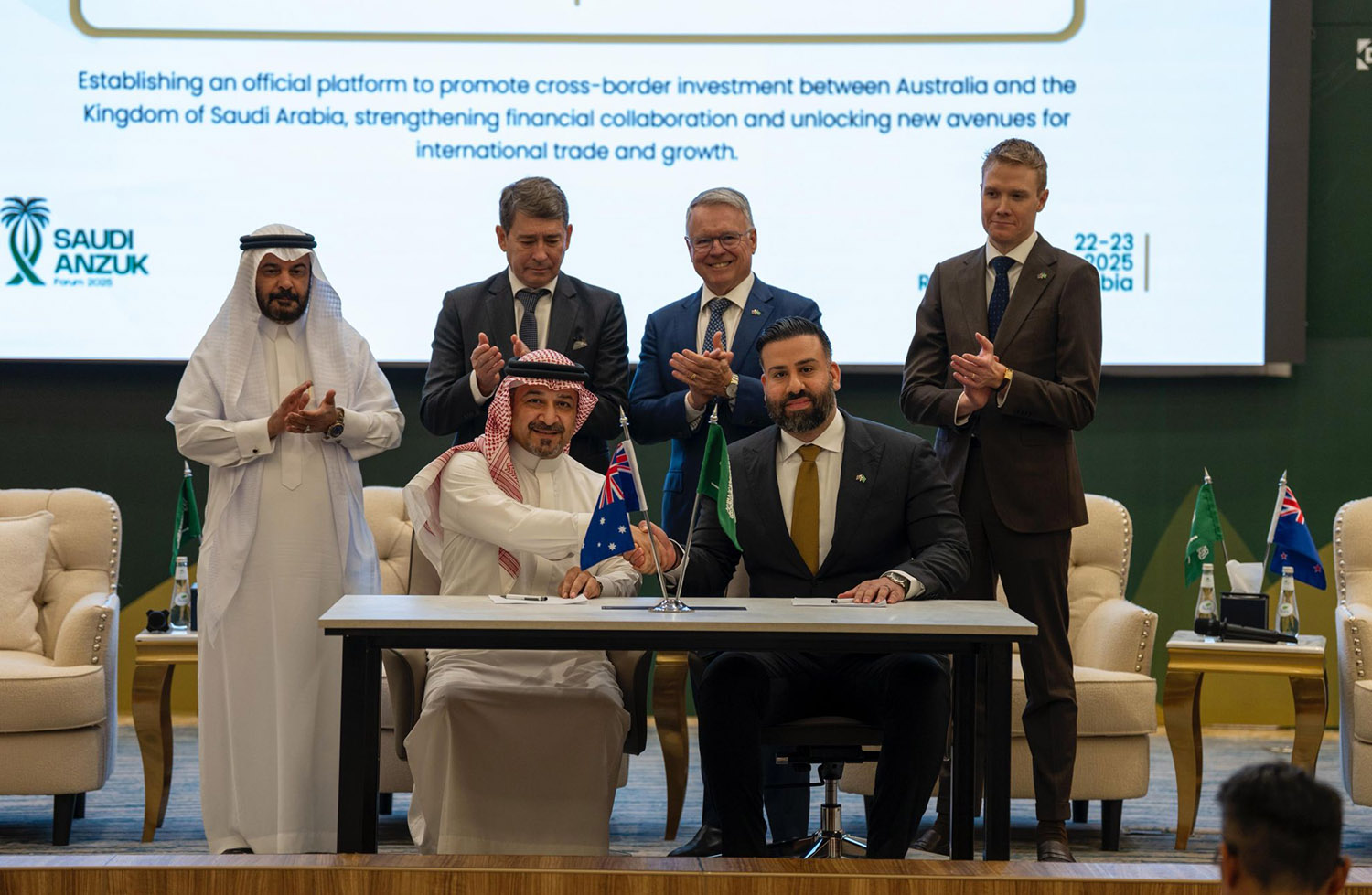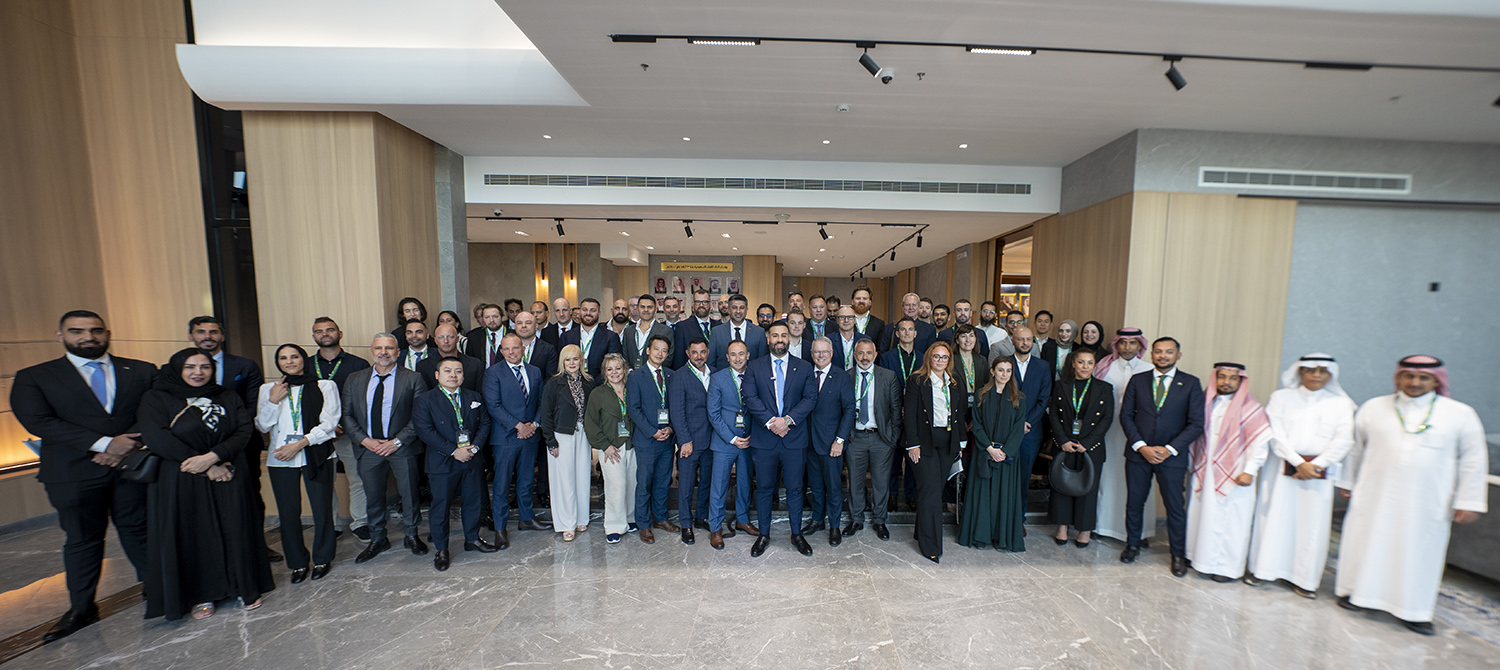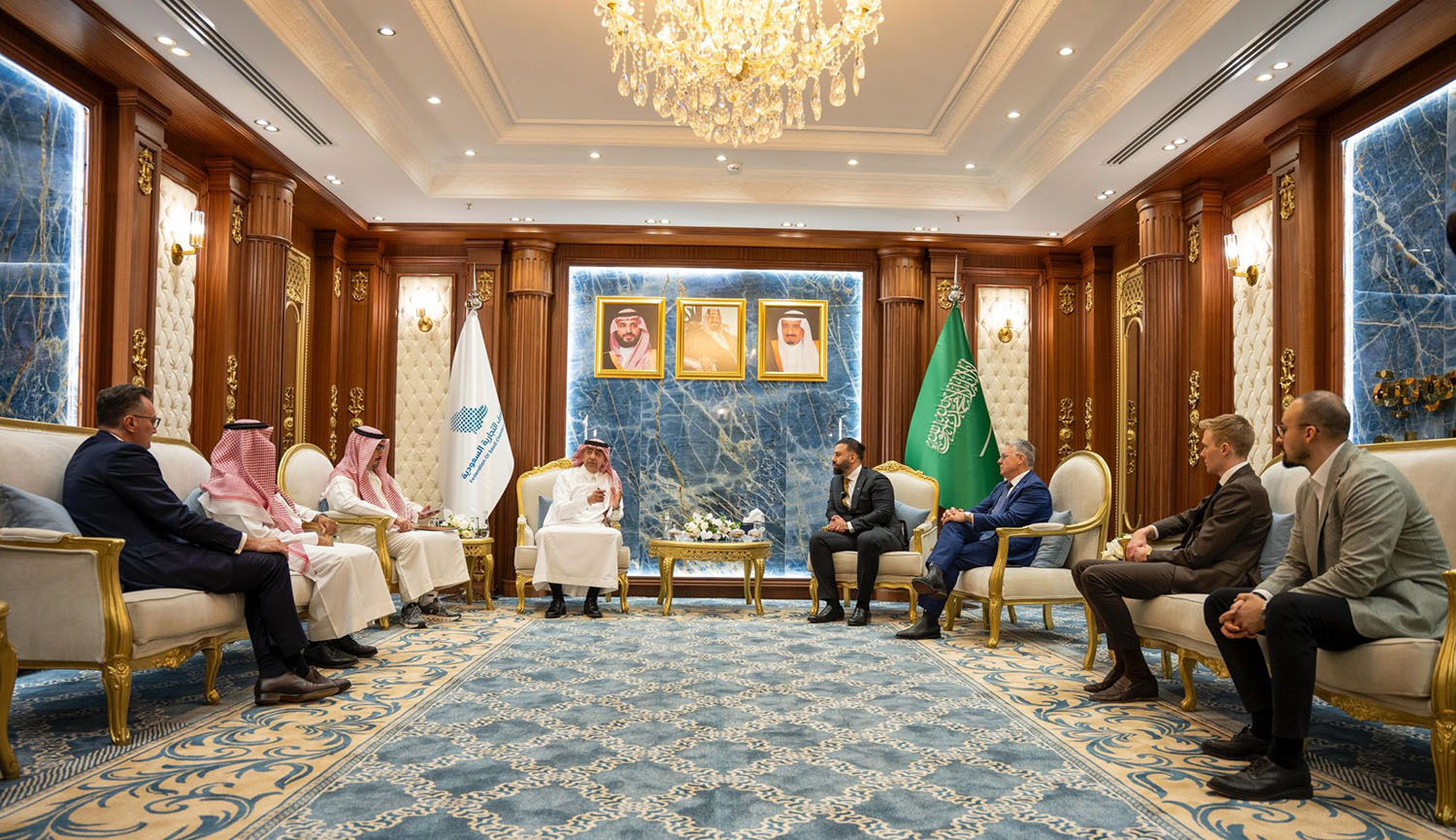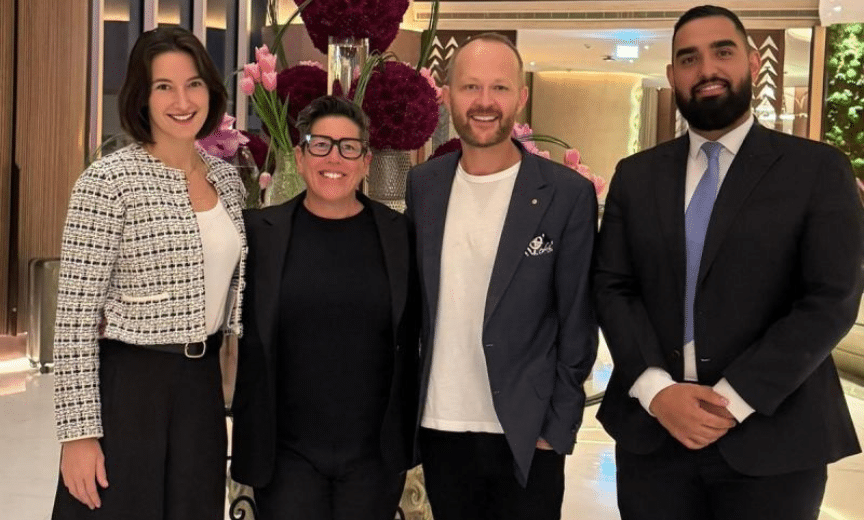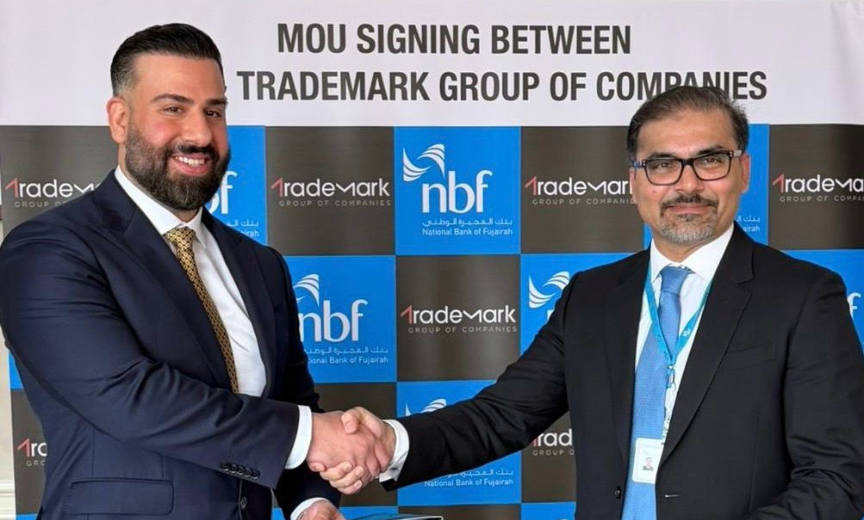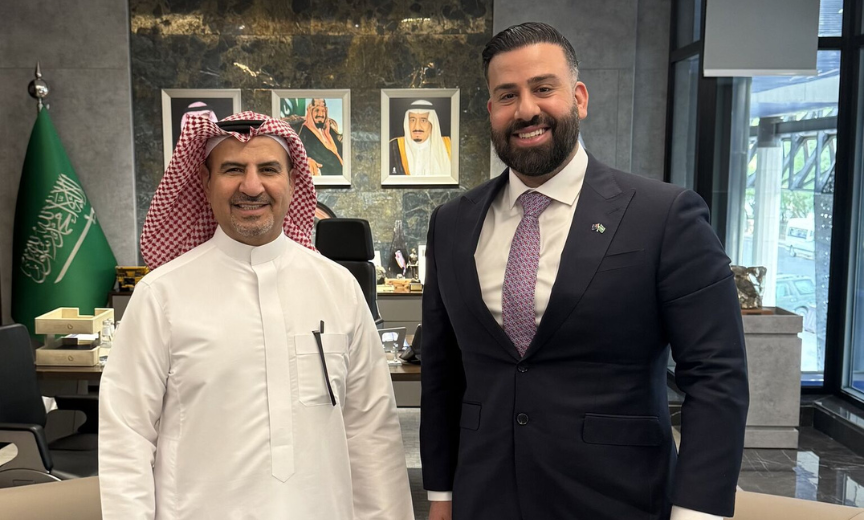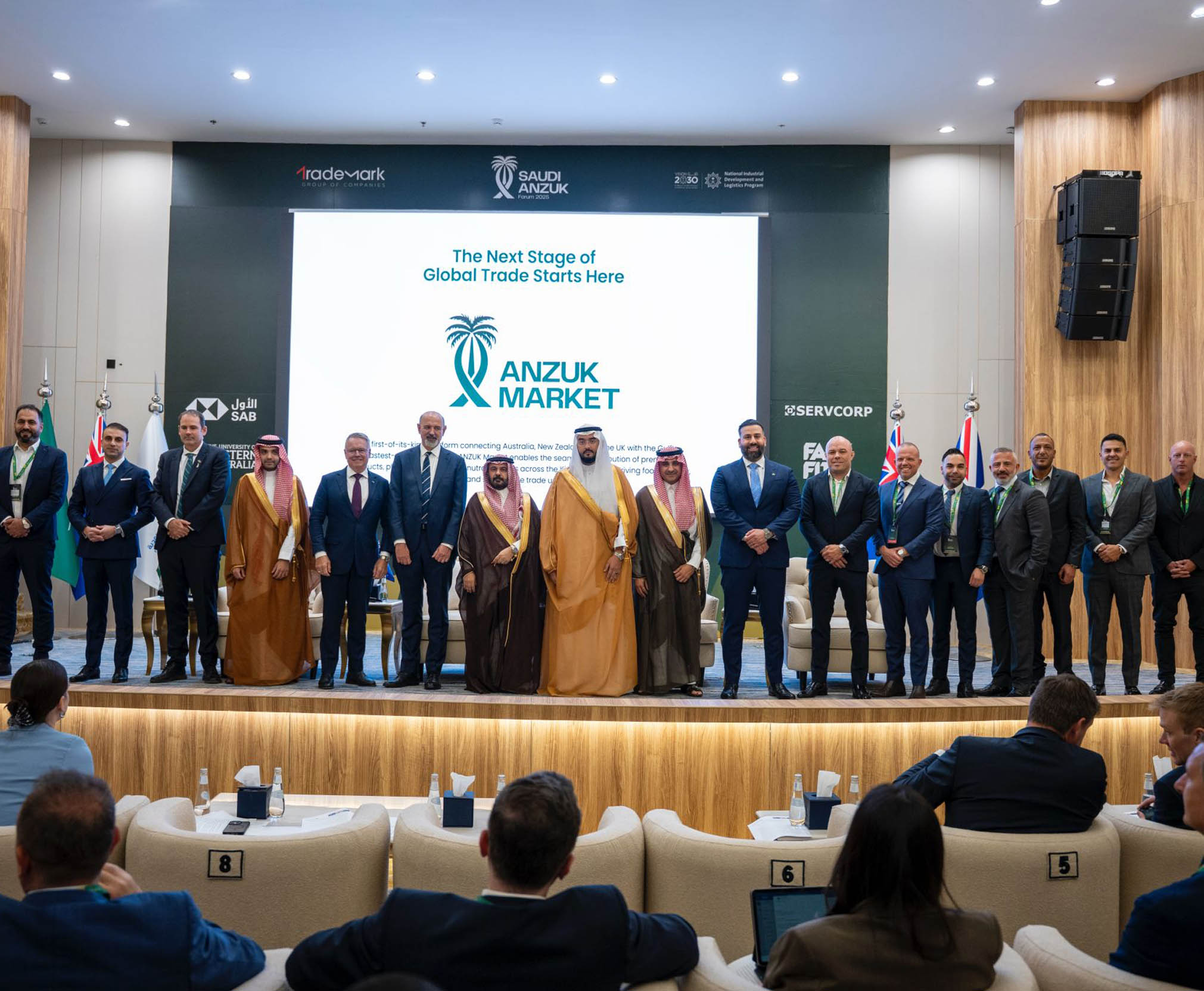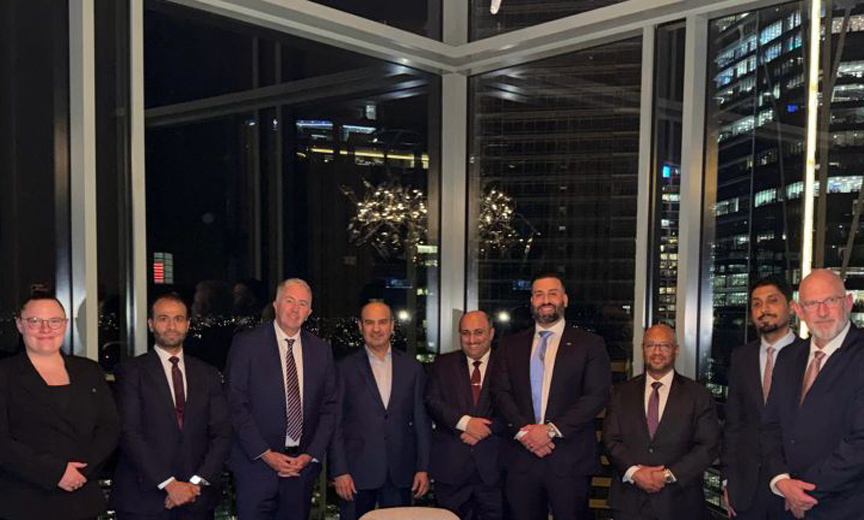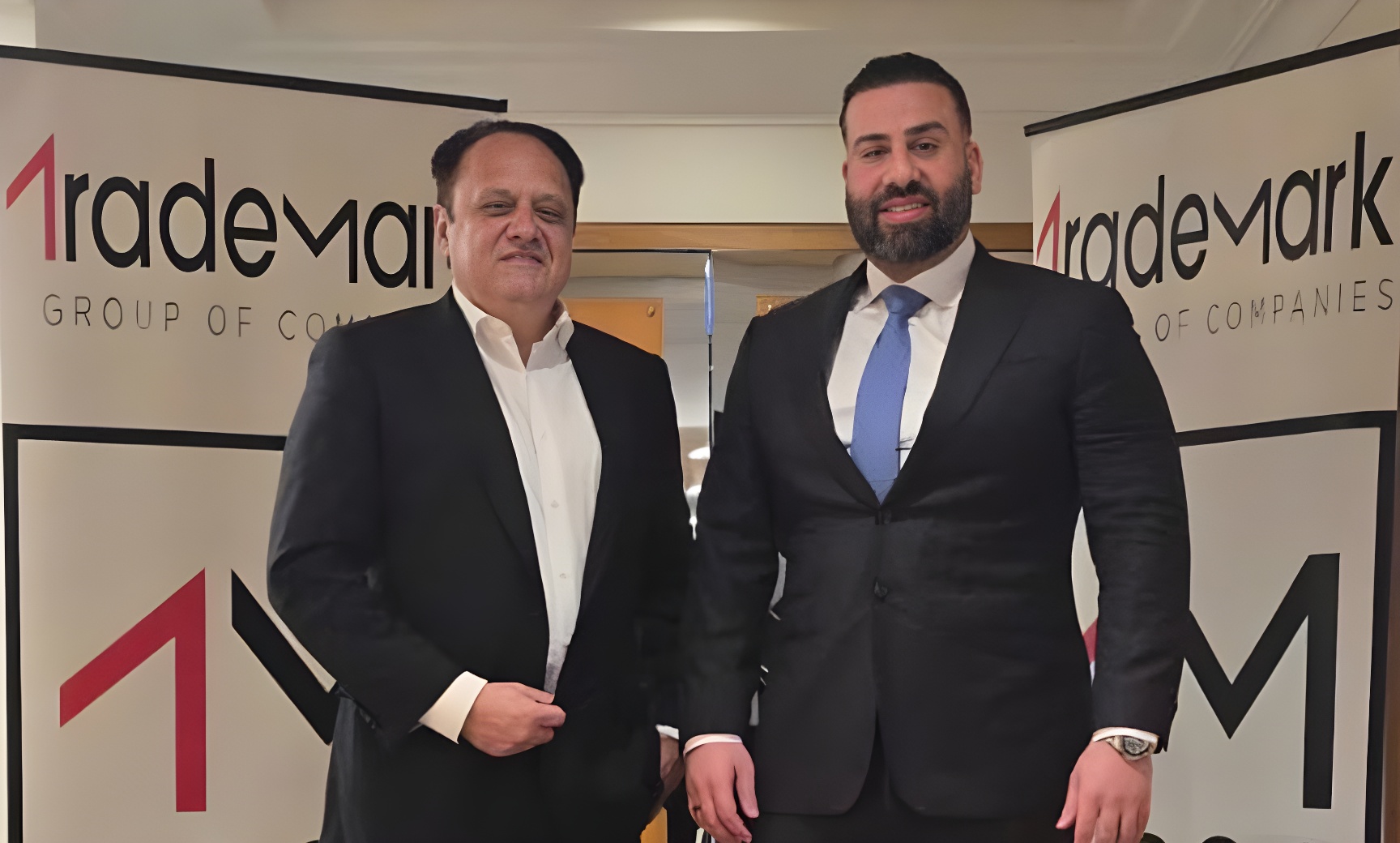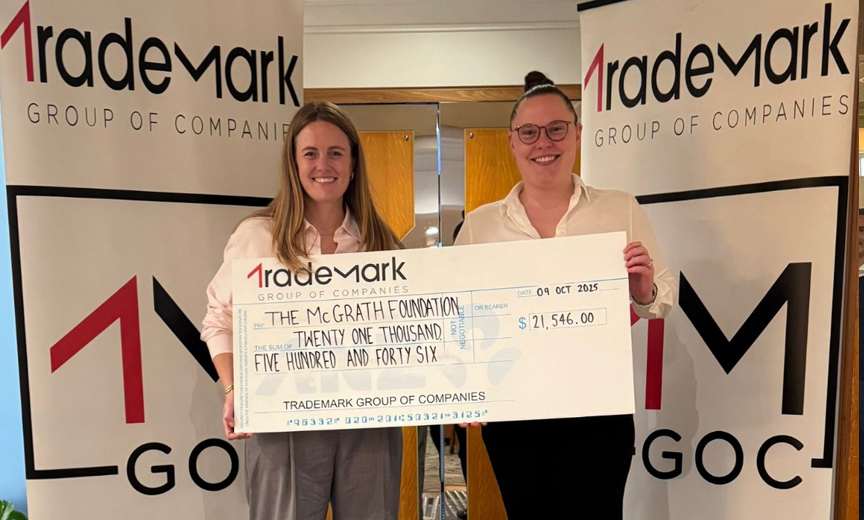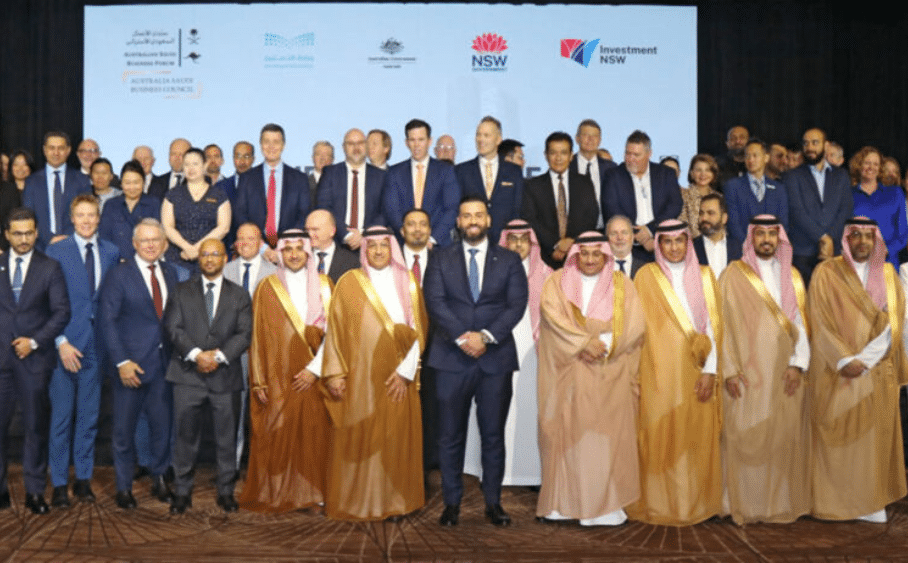Organised by Trademark Group of Companies in partnership with the Australian Saudi Business Council & Forum (ASBC/F), the Forum served as a living bridge between nations — a place where ideas, industries, and aspirations converged under the unifying ambition of Vision 2030.
Inside Riyadh’s buzzing venue, conversations echoed with optimism and intent. Ministers, mayors, innovators, and founders sat shoulder to shoulder, not as counterparts, but as co-designers of a shared future.
The opening day unfolded with ceremony and anticipation. Delegates arrived to the rhythm of new introductions and warm reunions, a reflection of how deeply Australia, New Zealand, the UK and Saudi Arabia are already intertwined through trade, education and innovation.
The Forum was officially opened by Sam Jamsheedi, President of the Australian Saudi Business Council & Forum and Global Chairman of Trademark Group, whose vision and determination have transformed years of bilateral dialogue into tangible platforms of collaboration. His remarks were followed by an address from H.E. Miles Armitage, Australia’s Ambassador to Saudi Arabia, and subsequently by a special video message from The Hon. Don Farrell, Australia’s Minister for Trade and Tourism, who delivered a forward-looking message of optimism about the future of Saudi–Australian relations.
The first session, “Strengthening Australia’s Global Trade Footprint: Innovation, Investment and Strategic Partnerships,” captured the essence of the ANZUK Forum. The fireside chat between The Hon. Joel Fitzgibbon and The Hon. Steve Ciobo set a strong foundation for collaboration between Australia and Saudi Arabia, highlighting opportunities for innovation-led growth and deeper trade relationships.
This was followed by insightful presentations from Saudi Government representatives who provided valuable context on the Kingdom’s economic transformation under Vision 2030.
Ferooz Sidiqui from the Ministry of Investment (MISA) shared how Saudi Arabia is fostering an investor-friendly environment and opening new pathways for international partnerships. Abdullah Thebiti from the National Industrial Development and Logistics Program (NIDLP) outlined the Kingdom’s strategy to become a global hub for industry, energy, and logistics through infrastructure development and foreign investment.
Together, their insights offered international delegates a clear understanding of Saudi Arabia’s investment landscape and Vision 2030 priorities, setting the stage for the keynotes and panels that followed.
David Henry, CEO of Misk City, delivered one of the day’s most inspiring and widely praised keynotes, unveiling the vision behind Misk City, the world’s first nonprofit city. He outlined how the project is redefining urban living by integrating innovation, education, culture, and sustainability into a single ecosystem designed to empower Saudi youth and nurture global collaboration. With world-class infrastructure, cutting-edge smart city technology, and a strong focus on talent development, Misk City represents a bold model for future-ready urban environments. David’s presentation captured the imagination of delegates, showing how visionary planning can turn purpose into progress while aligning with the goals of Vision 2030 and the forum’s theme of building for the future.
David’s keynote was built upon by an experienced panel discussing, “The Future is Built Here.” Moderated by Dr. Sarah Hill and featuring Amen Zoabi of Binah Group and Osama Al Hussain of CSQ, the panel shared their perspectives on Saudi Arabia’s growing role in the global construction sector. Both highlighted the Kingdom’s ambitious development agenda and its appeal as a destination for innovation and investment. Drawing from their international experience, they discussed the importance of balancing growth with sustainability and affordability, while emphasising the need for strong planning, skilled talent, and collaboration as the foundations for building the cities of the future.
Discussions throughout the day continued to reflect the shared ambition to advance education, industry, and innovation between Australia and Saudi Arabia. Mayor Ned Mannoun spoke about Liverpool’s diversity as a powerful driver of creativity, highlighting how inclusive communities can spark ideas that transform cities. His message, that diversity fuels innovation, resonated deeply across borders. “It reminded me,” one delegate said, “that when perspectives mix, innovation multiplies.”
Nashid Chowdhury of the University of Western Australia built on this theme, outlining new pathways for education partnerships and the importance of knowledge exchange in preparing a globally connected workforce. The conversation was further enriched by Frank Forouzandeh, Founder of Modern X, who explored how technology is reshaping industrial design and construction. Together, their insights underscored the growing potential for collaboration between Australian expertise and Saudi Arabia’s forward-looking innovation ecosystem.
The final keynote of the day, delivered by Sam Griffiths, Australia’s Agricultural Counsellor to Saudi Arabia, served as the perfect anchor to round out a successful program. He reminded attendees that “food, culture, and trust already connect our regions through partnership,” reinforcing the deep ties that underpin trade and cooperation between Australia and the Kingdom.
By the close of Day 1, conversations had flowed naturally from panels to personal exchanges. The day concluded with a networking dinner at the Australian Embassy in Riyadh, where delegates celebrated the growing friendship between the two nations. Over shared stories and warm Saudi hospitality, it became clear that ANZUK was more than a business forum; it was a celebration of connection, collaboration, and shared vision.
The second day opened with a renewed sense of energy. Coffee cups clinked as delegates greeted familiar faces, ready for a line-up that would push conversations into action.
The Hon. Wyatt Roy, former Australian Minister for Innovation and Australia’s first Minister for Innovation, delivered a keynote that many delegates described as one of the most inspiring and impressive sessions of the day. Speaking on how innovation-led growth is transforming economies, he explored the role of creativity, adaptability, and forward thinking in shaping the future of business and policy. Wyatt highlighted the importance of fostering innovation ecosystems that connect government, industry, and education, and encouraged leaders to approach global challenges with curiosity and collaboration. His address set a powerful tone for the day, reminding delegates that true progress comes from those willing to think boldly and act decisively in an era of rapid change.
From there, Laila Alhabsi of the Saudi Ministry of Industry and Mineral Resources took the stage with a keynote on Critical Minerals & Beyond – Securing Supply Chains. Her insights underscored Saudi Arabia’s growing role in the global resource ecosystem — one grounded in transparency, resilience, and environmental stewardship.
The panel Funding the Future brought together Anthony Cripps of Saudi Awwal Bank (SAB) and Asad Khan of Saudi National Bank (SNB). Together they explored how innovative financing models can strengthen cross-border partnerships and support the next wave of bilateral growth between Australia and Saudi Arabia.
During the discussion, SAB’s commitment to fostering international collaboration was further underscored through the recently signed Memorandum of Understanding (MOU) between SAB and Trademark Group of Companies (TMGOC), a key step toward expanding financial and business connectivity between the two nations.
The panel was followed by a keynote from Nicolas Hanna, General Manager of Servcorp, another valued sponsor of the Forum. His presentation, Building a Premier Presence in Saudi Arabia and Beyond, showcased Servcorp’s journey, from 35 regional locations to 16 within the Kingdom, illustrating how world-class infrastructure and service excellence empower international businesses to thrive in Saudi Arabia’s rapidly evolving economy.
A defining moment of the Forum came with the panel Empowering Women in Business: Shaping the Future of Vision 2030, featuring Kim Ralston, Deputy Head of Mission at Australian Embassy, and Gönül Serbest, Commissioner for Victoria to Europe, Middle East, Türkiye and Africa. The session was moderated by Beck Howe, Trademark’s Saudi Arabia Partnerships Manager, and highlighted the growing leadership of women across sectors in both Australia and Saudi Arabia.
Their dialogue reflected the broader transformation underway in the Kingdom, one where women are no longer participants but key architects of progress.
That same day, the Forum proudly announced the launch of the Australian Women in Business Association (AWIBA) Saudi Chapter, a milestone that symbolised collaboration, mentorship, and shared empowerment between both nations.
Another one of the most talked-about and praised sessions of the Forum, From Garage to Global, explored how Saudi Arabia is transitioning from a “buyer” to a “builder” economy through innovation, entrepreneurship, and technology.
The panel featured Dr. Mohammed Alsawwaf (Chief Technology Officer, Waseera Fintech), Abdullah Alghamdi (CEO, LAFT), and Mohamed Taha (Executive Director, ALAT). The discussion was moderated by Dr. Reem Alothmany, who guided a thought-provoking conversation on how Saudi founders are reshaping the global innovation landscape.
The session was followed by a keynote address from Houssam Abiad, whose insights resonated deeply with the audience. As he put it, “The old thesis, Europe invents, the US commercialises, and Saudi buys, is evolving. Saudi now builds.” His message to Australian entrepreneurs was clear: come to Saudi to co-build, not just to sell.
These conversations reflected a growing consensus that innovation must be grounded in collaboration, operational excellence, and shared market access.
The session Building Resilient and Adaptive Supply Chains was moderated by Lily Bowers from the Saudi Logistic Academy, and featured Justin Sloan (Chief of Freight Forwarding Division, Nagel Express) and Matt Eryurek (CEO, KTL Australia). The discussion explored how innovation in logistics, driven by people, technology, and global collaboration, is reshaping supply chains across both regions.
The conversation transitioned into a Fireside Chat on AI and Sustainability with Dr. Boris Guennevieg (Chief Technology Officer, UniVerse TDAJ) and Norman McComb (Sustainability Advisory Director, SERCO). Together, they discussed Saudi Arabia’s transformation under Vision 2030 — where data drives decision-making and sustainability becomes a measurable foundation of national progress.
This session also provided an ideal platform to acknowledge the Trademark Group and KTL Australia partnership announcement, which reinforces the Forum’s central message: collaboration as the key to advancing resilient, tech-driven logistics ecosystems.
The final panel, “Health Partnerships: Building the Future of Healthcare,” moderated by Razan Bukhari, brought the Forum full circle, reconnecting themes of innovation, investment, and social impact. Fayez El Harbi, CEO of Selat, joined two Australian delegates to discuss how healthcare innovation and cross-border investment are shaping healthier, more connected communities. The session also provided a platform for the Australian delegates to share their stories, outlining their ambitions to expand into Saudi Arabia and the opportunities they see within the Kingdom’s rapidly growing health and wellness market.
With closing remarks from organisers and heartfelt thanks to sponsors, the event concluded not with an ending but with a beginning, a shared sense that something larger had been set in motion. As one participant reflected, “The Forum was a celebration of connection, you could truly feel the bonds between our nations.”
Each partnership underscored a shared commitment to innovation, investment, and inclusion — principles at the heart of the ANZUK vision.
Innovation & Startup Growth: The Forum’s “Garage to Global” dialogue reframed how entrepreneurs and investors view Saudi Arabia — not as an endpoint, but as a launchpad for scalable, global ventures.
Health Partnerships: From digital infrastructure to hospital design, healthcare emerged as a frontier where innovation and humanity converge.
Women in Business: The AWIBA Saudi Chapter launch marked a shift from representation to leadership, opening pathways for women entrepreneurs and executives across both nations.
AI & Sustainability: Experts like Dr Boris Guennewig connected artificial intelligence to environmental impact, showing how technology can accelerate carbon neutrality and social inclusion.
Logistics & Supply Chains: Panels led by industry figures such as Matt Eryurek and Dr Alabdulkarim spotlighted how adaptability and capability-building are redefining global trade resilience.
Together, these themes formed a mosaic of transformation — not theoretical, but tangible and immediate.
In the words of one delegate, “It wasn’t just cities rising from sand — it was nations bridging dreams and destiny.”
The energy of the Saudi–ANZUK Forum was more than optimism; it was conviction. Attendees left with a sense of standing “at the edge of history,” witnessing the next chapter of global collaboration unfold in real time.
For two days in Riyadh, the world saw a glimpse of the Kingdom’s future — a future being built together.

